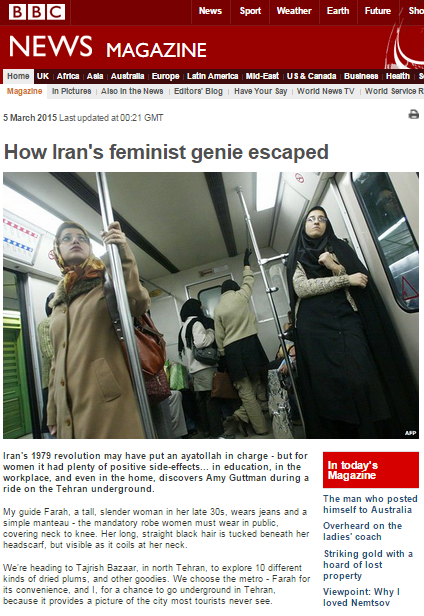As we regularly note in our monthly summaries of BBC News website coverage of Israel and the Palestinians, the corporation displays remarkably little interest in informing its audiences about internal Palestinian affairs.
Throughout the first seven months of 2023, visitors to the BBC News website saw just three such items, one of which was actually about violence in Lebanon.
January 2023: Gaza’s only all-girl boxing club finds a home
June 2023: ‘As Palestinian youths, the political process has failed us’ Yousef Eldin (discussed here and here)
July 2023: Lebanon clashes: Thousands flee violence at Palestinian refugee camp (discussed here)
Even taking into account that chronic under-reporting of new about Palestinian society and Palestinian politics, it is difficult to explain the BBC’s failure to cover a story that broke on August 10th.
“Palestinian Authority President Mahmoud Abbas on Thursday ordered the removal of 12 out of the 16 regional governors in the West Bank and Gaza.
Among those ordered to “retire” are the governors of northern Gaza, Gaza City, Khan Younis, and Rafah in the Gaza Strip, according to the official Wafa news agency. These roles are symbolic and lack authority, since the Fatah-controlled PA was violently booted from the coastal enclave in 2007 by the Hamas terror group, which has ruled there ever since.
In the West Bank, he ordered the removal of the governors of Jenin, Nablus, Qalqilya, Tulkarem, Bethlehem, Hebron, Tubas and Jericho.
No reason was given for the political upheaval, but the report said Abbas ordered the creation of a presidential committee to find suitable candidates to take over the positions.”
The Palestinian Authority has sixteen governates: five in the Gaza Strip and eleven in the areas of Judea & Samaria under its control. Abbas’ firing of the four governors in the Gaza Strip means that all of the governates in that Hamas-controlled territory are now without a head because the governor of the fifth area died in 2020 and was not replaced.
Analysts and commentators have opined that the real significance of Abbas’ order is the removal of the eight Fatah-affiliated governors in PA controlled areas. The Jerusalem Post’s Khaled Abu Toameh wrote:
“The surprise move is seen in the context of Abbas’s effort to reassert the PA’s control over many areas, especially in the northern West Bank, in light of the growing power of armed groups affiliated with Hamas and Palestinian Islamic Jihad. Some of the governors have been accused of failing to enforce law and order in their districts, paving the way for the emergence of several armed groups.
Moreover, the move is seen in the context of Abbas’s effort to pave the way for the emergence of new leaders.”
WINEP’s Ghaith al-Omari noted that “No replacements were appointed; instead, a presidential committee has been established to recommend suitable candidates to Abbas” and suggested that the move could have effects in several areas:
“PA officials will likely use the decision to assuage international diplomatic worries about their hold on power. For some time now, regional and international interlocutors have expressed deep concerns about poor governance and political stagnation in the PA.
The new vacancies and the protracted committee process for filling them will also create another arena of competition for senior Fatah officials, potentially distracting them from other responsibilities as they vie for the important positions. Given the primacy of personal loyalty in senior PA appointments, Abbas stands to benefit politically from this competition—though some of the ousted governors have established support among local Fatah activists, which could create tensions within the movement.
Less certain is the edict’s impact on public support for the PA, whose popularity has been steadily declining. One probable motivation behind the decision was to create a sense of change in the PA to counter its ossified image. Although it is too early to tell, such an approach is unlikely to have a lasting impact on the PA’s domestic standing absent more significant reform.
The edict might also be significant for the PA’s power in the northern West Bank, particularly Nablus and Jenin. In recent months, the governors of those districts had repeatedly clashed with newer militant groups such as the Lion’s Den and the Jenin Brigade; in the latter case, some of the confrontations resulted in violence. Will these groups see Abbas’s move as an olive branch or as a political and security vacuum to be exploited?”
Dr Michael Milshtein of Reichman University noted that most of most of the fired governors in the PA controlled areas are seen as loyal to Jibril Rajoub – one of the would-be successors to Mahmoud Abbas – and that the move could be linked to the long-running question of who will replace him as PA president.
MEMRI’s analysts connected the move to the PA’s attempts to assure foreign parties that it is reasserting its presence over the areas supposedly under its control.
“First, it is increasing the visibility of its leaders in the West Bank, especially in its northern part, reinforcing its security apparatuses there and highlighting its concern for the citizens in the media. Furthermore, in the recent days President ‘Abbas took a dramatic and surprising measure when he issued a presidential decree “sending to retirement” most of the district governors in the West Bank, apparently due to their failure to curb the terror organization in their districts. In addition, it is carrying out an extensive wave of arrests against armed operatives from various factions, and is reportedly even offering them jobs in the PA apparatuses in return for laying down their arms. At the same time, it continues to express public support for the local armed fighters and their struggle against Israel, so as to maintain its popularity with the locals and the legitimacy of its rule and avoid being perceived as collaborating with Israel.” [emphasis added]
As regular readers will be aware, the BBC’s coverage of the rise in terrorism from PA controlled areas over the past two years has provided its audiences with very little information about the relevant topic of the Palestinian Authority’s loss of control in some areas, its failure to meet its Oslo Accords obligations to combat terrorism, internal political turmoil and the involvement of members of the PA security forces in terrorism and armed attacks.
Whatever the reasons behind – and implications of – this surprise move by Abbas, it is clear that it is a significant event in Palestinian Authority internal politics. Nevertheless, BBC audiences have yet to see any mention of the story whatsoever.
Related Articles:
REVIEWING BBC NEWS WEBSITE COVERAGE OF PALESTINIAN AFFAIRS IN 2022
BBC NEWS IGNORES THE STORY OF THE NEW FATAH VICE-CHAIR
BBC’S KNELL OMITS BACK STORIES IN PORTRAYAL OF PA SUCCESSION





